How to stop compost smelling bad – 5 expert methods to keep unpleasant odors away
You might find it surprising to know that compost isn't meant to be smelly, even if it's made up of kitchen waste

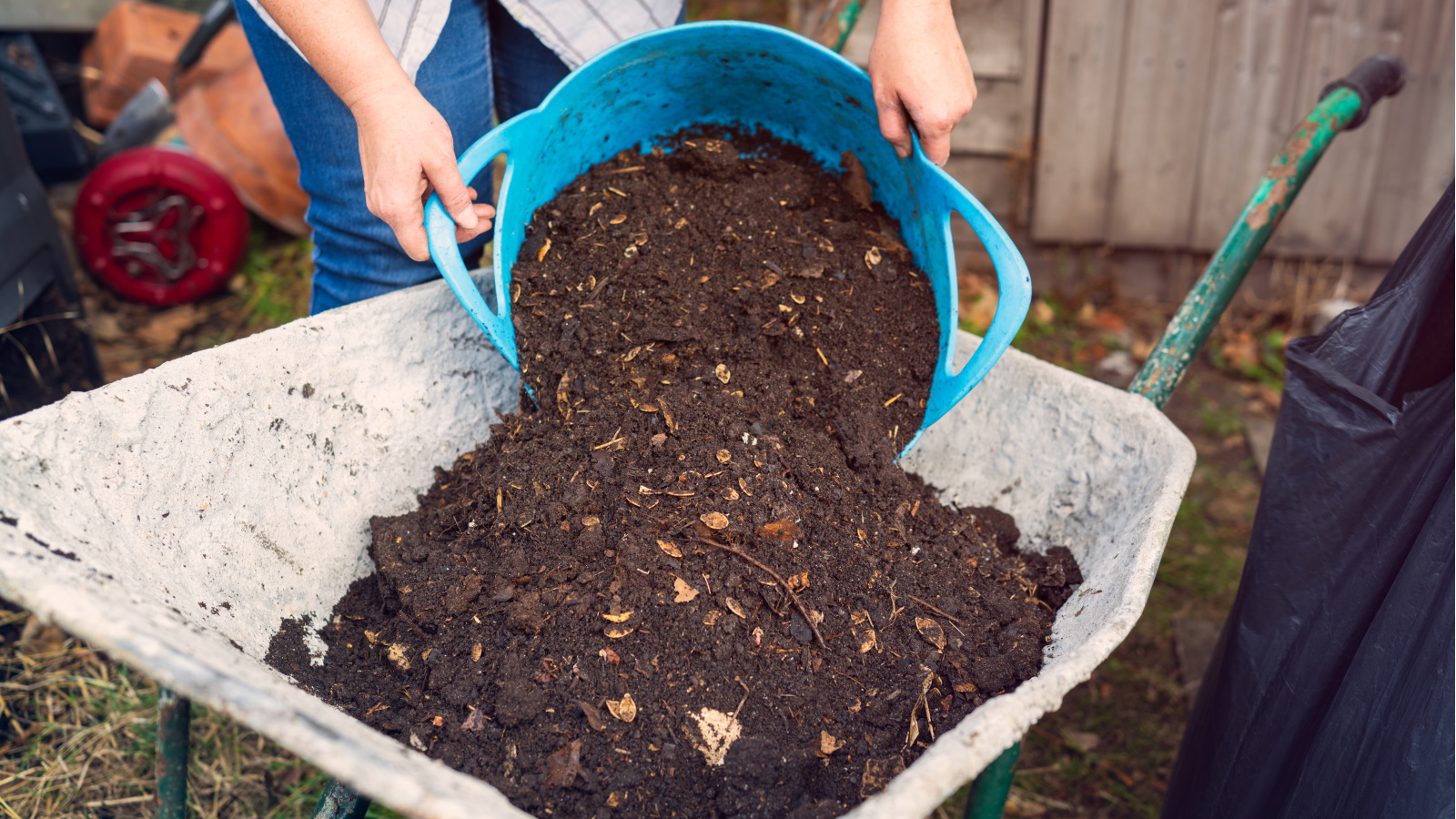
It's easy to assume that bad smells come with composting - after all, it's all about breaking down a collection of kitchen and garden waste. However, bad smelling compost is actually a sign that something isn't quite right.
If you're new to making compost, you might not realise that you could be making a few composting mistakes that is leaving your compost bin smelling bad. Whether it's because you're using the wrong ingredients, aren't providing enough airflow or keeping your compost bin in the wrong conditions, there are a few reasons why your compost is emitting odors when it shouldn't be.
Luckily, there are some easy fixes to stop your compost smelling bad. Here are different methods experts suggest trying.
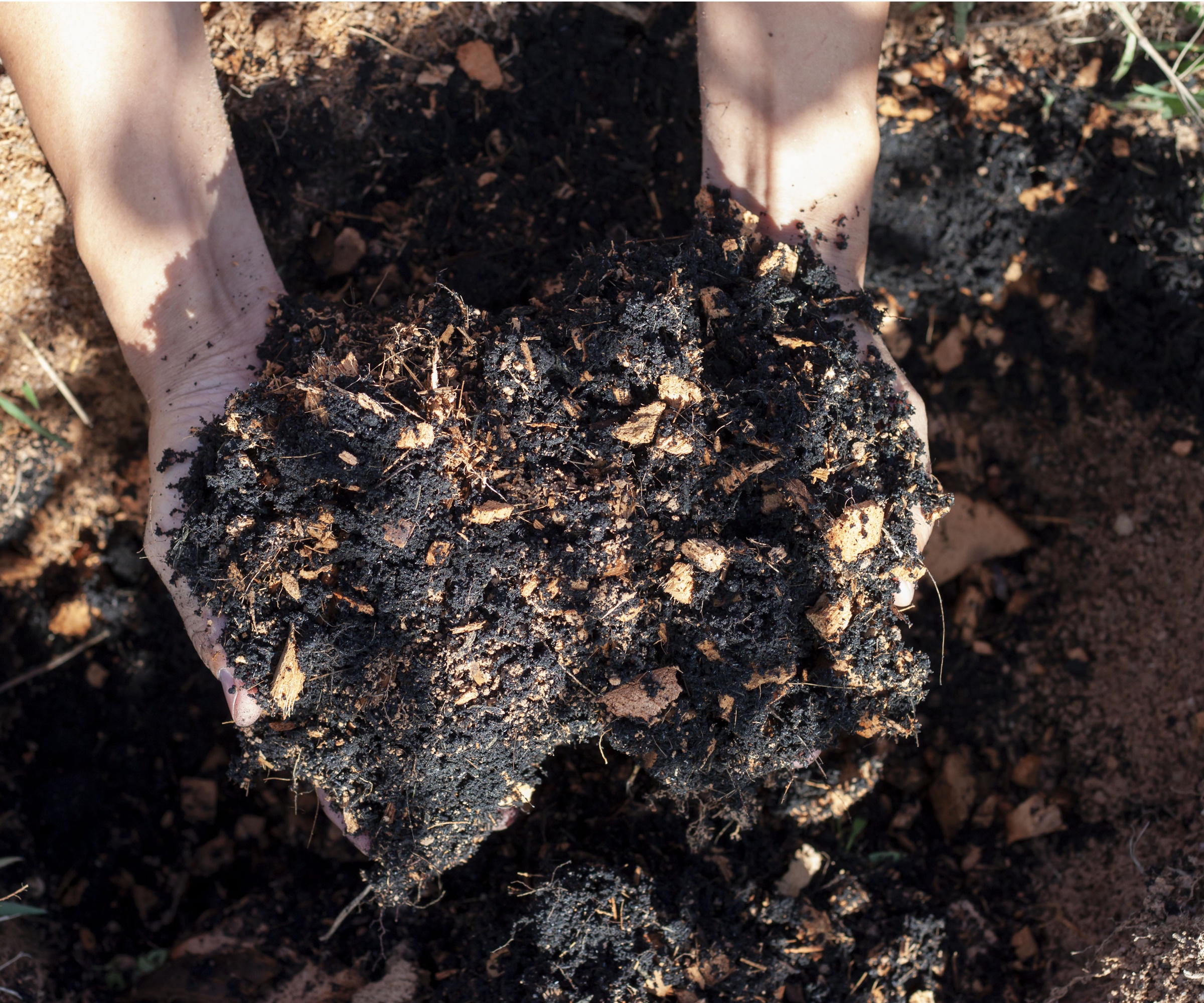
5 ways to stop compost smelling bad
Even though we use a range of unusual compost ingredients to create the perfect mixture to boost nutrients for our plants, compost shouldn't smell bad. A normal level of smell from the materials you use is expected, but if your compost bin gives off a foul odor you might need to make some adjustments. Here are 5 methods to stop compost smelling bad.
1. Don't put meat in your compost bin
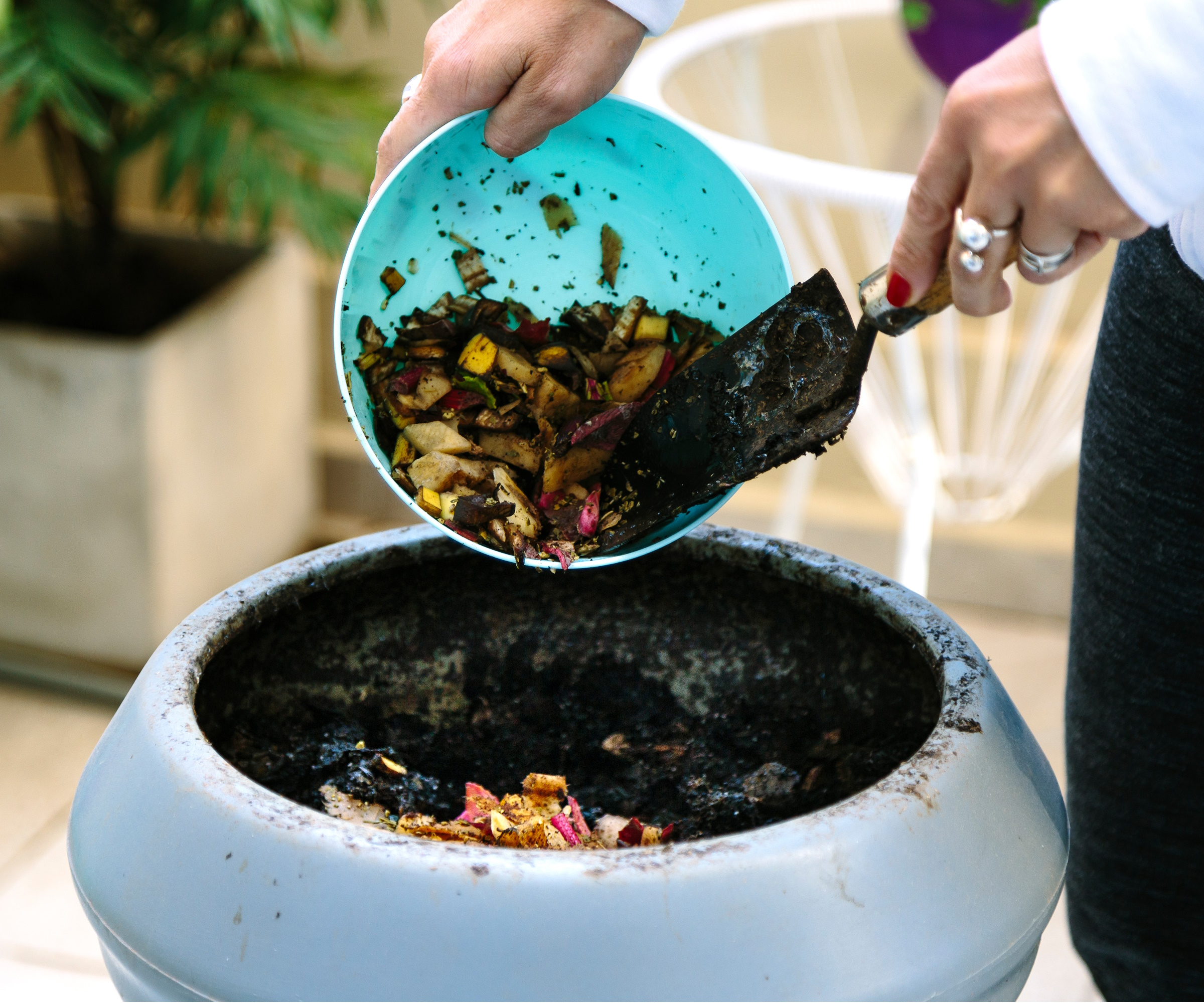
While it may be tempting to use your compost bin for all food waste, putting the wrong ingredients in can cause a bad smell - largely due to a lack of decomposition and food scraps quickly turning bad in the compost pile.
'Number one rule of thumb: Never include meat, bones or dairy in your backyard compost bin,' says Colleen Falicki from Back to Earth Compost Crew. 'These items will make your compost smell bad, plus you'll attract unwanted pests and rodents,' she adds.
Compost should only be made up of green materials, like fruit and vegetable scraps, and brown materials, like straw and paper - all of which are biodegradable.
Design expertise in your inbox – from inspiring decorating ideas and beautiful celebrity homes to practical gardening advice and shopping round-ups.
Although, food scraps that are yet to break down in you compost heap may also attract pests, so it's important to make your bin secure when making a composter. You might also find it useful to place pest-repellent plants near your compost bin to add an extra layer of security.

Colleen founded Back to Earth Compost Crew in 2017 to keep food scraps out of landfill and turn it into compost. She educates about composting and advises on how to successfully compost.
2. Get the nitrogen-carbon ratio right
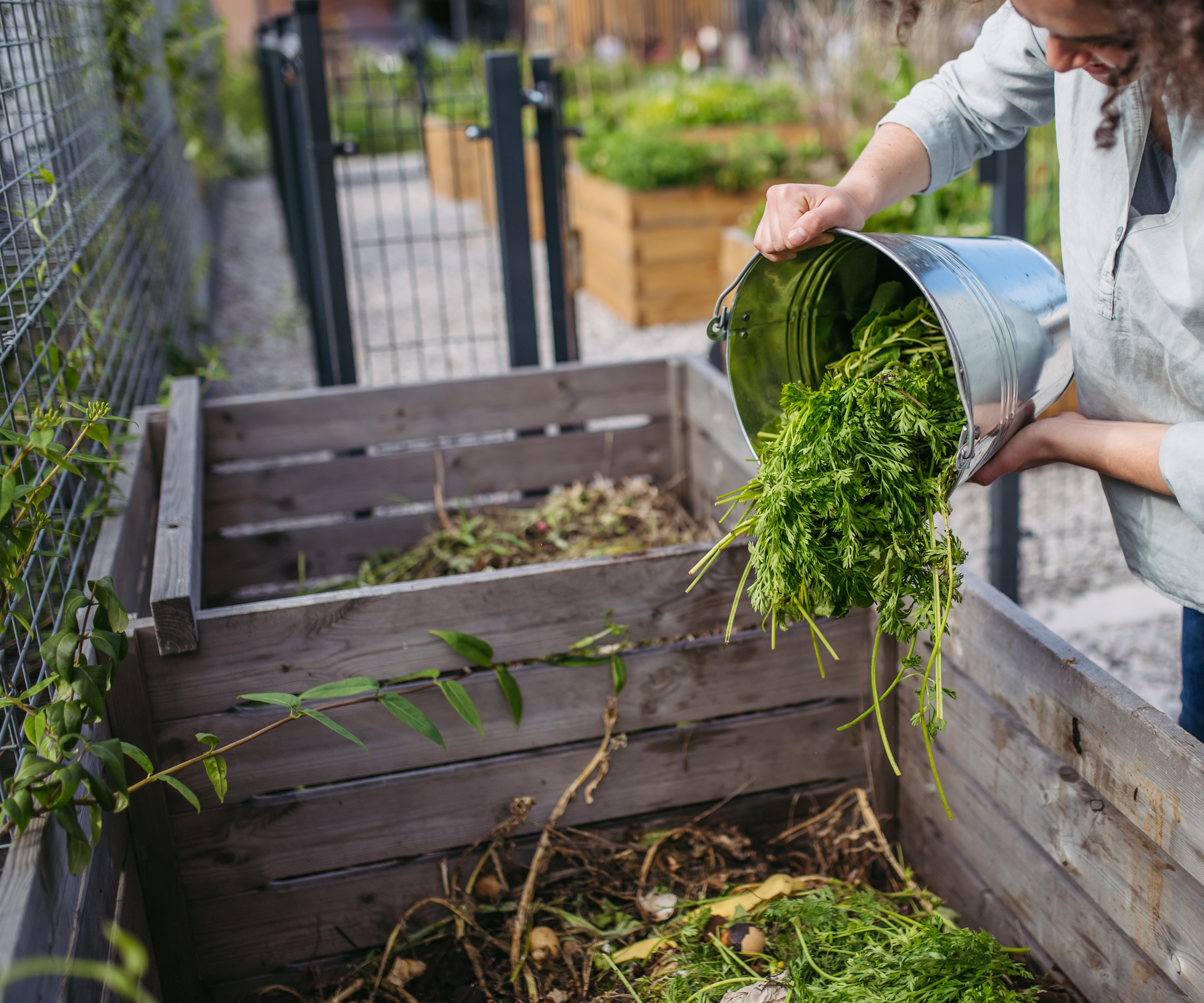
Not only do you have to make sure you're putting the right things into your compost heap, you also need to make sure you get the ratio right to encourage successful deterioration. Green materials contain high amounts of nitrogen, while brown materials have more carbon.
'Always use the 3:1 ratio when it comes to carbon and nitrogen,' says Colleen. 'For example, three containers of carbon (leaves, shredded paper, mulch, shredded cardboard) to one container of nitrogen (fruit and veggie scraps, coffee grounds),' she adds. 'Most people don't realize how much carbon is needed.'
Having this ratio of nitrogen and carbon allows for successful breaking down. This, in turn, reduces unpleasant smells because food scraps get broken down more quickly.
'Permaculture interns at Washington College avoid compost odors by accelerating the decomposition process. Their secret ingredient is blending in comfrey leaves and stalks, which thanks to their high concentration of nitrogen, phosphorus and potassium, speed up breakdown,' notes Shane Brill, director the community garden at Washington College in Chestertown, MD.
To help with the decomposition process, you can also use this compost starter from Amazon, or try hot composting.

Shane is a permaculturist, wellness advocate, and educator, uniquely positioning him to see, and speak to, the effects of community gardens, especially where young adults are concerned.
3. Shred your compost materials
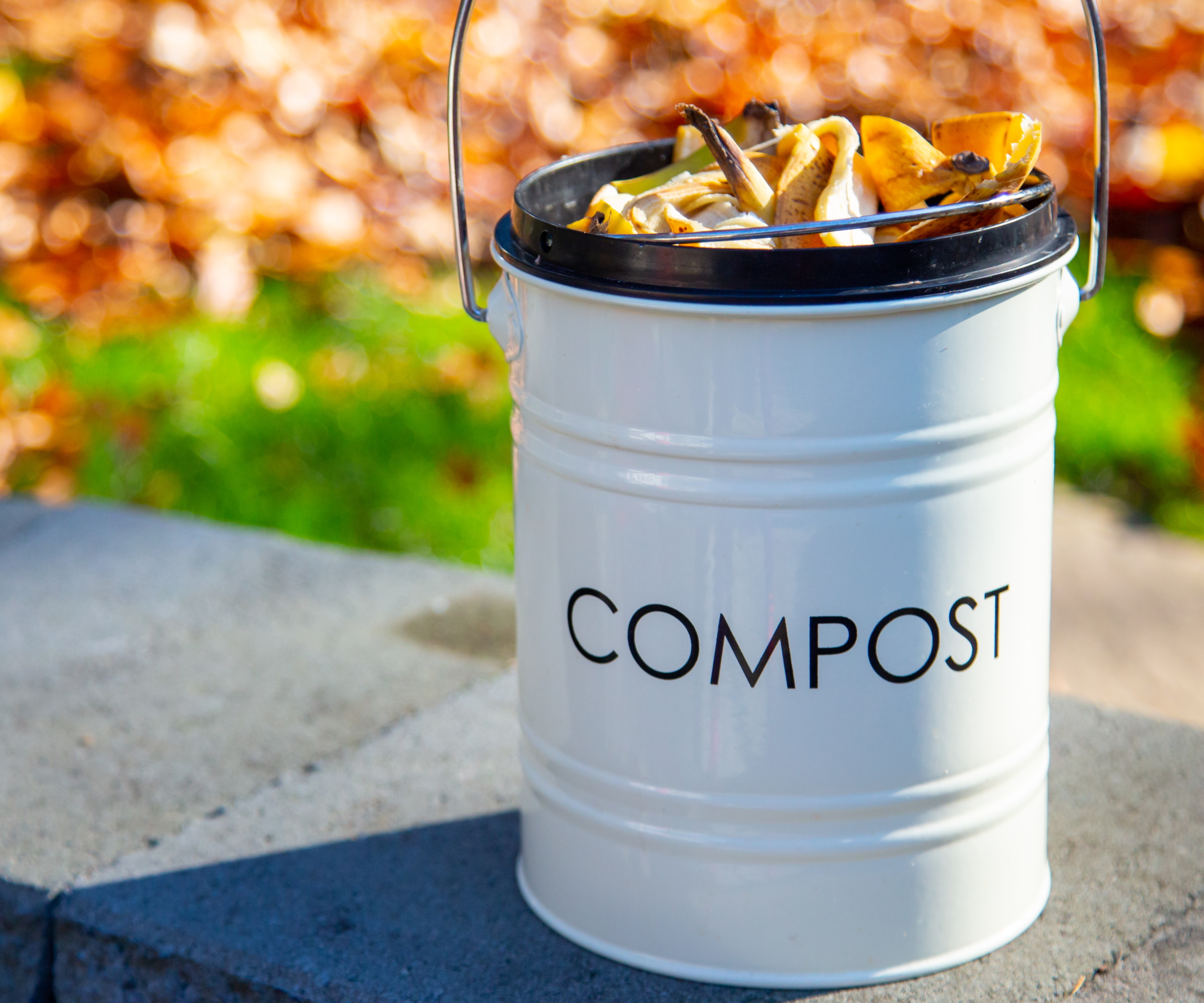
As another method of speeding up the time it takes for compost materials to break down, and therefore avoid them sitting in your bin with a lingering smell, you can shred your compost ingredients.
'Always chop your fruit and veggies into small pieces and after adding them to your pile, always end with carbon on top,' notes Colleen.
Whether you're using banana peel for fertilizer or using orange peel for plants, shredding food scraps before using them in compost or on plants will help them break down faster and reduce any rotting smells.
Try using this kitchen slicer from Amazon to help shred your food scraps to put in your compost bin.
4. Regularly turn your compost
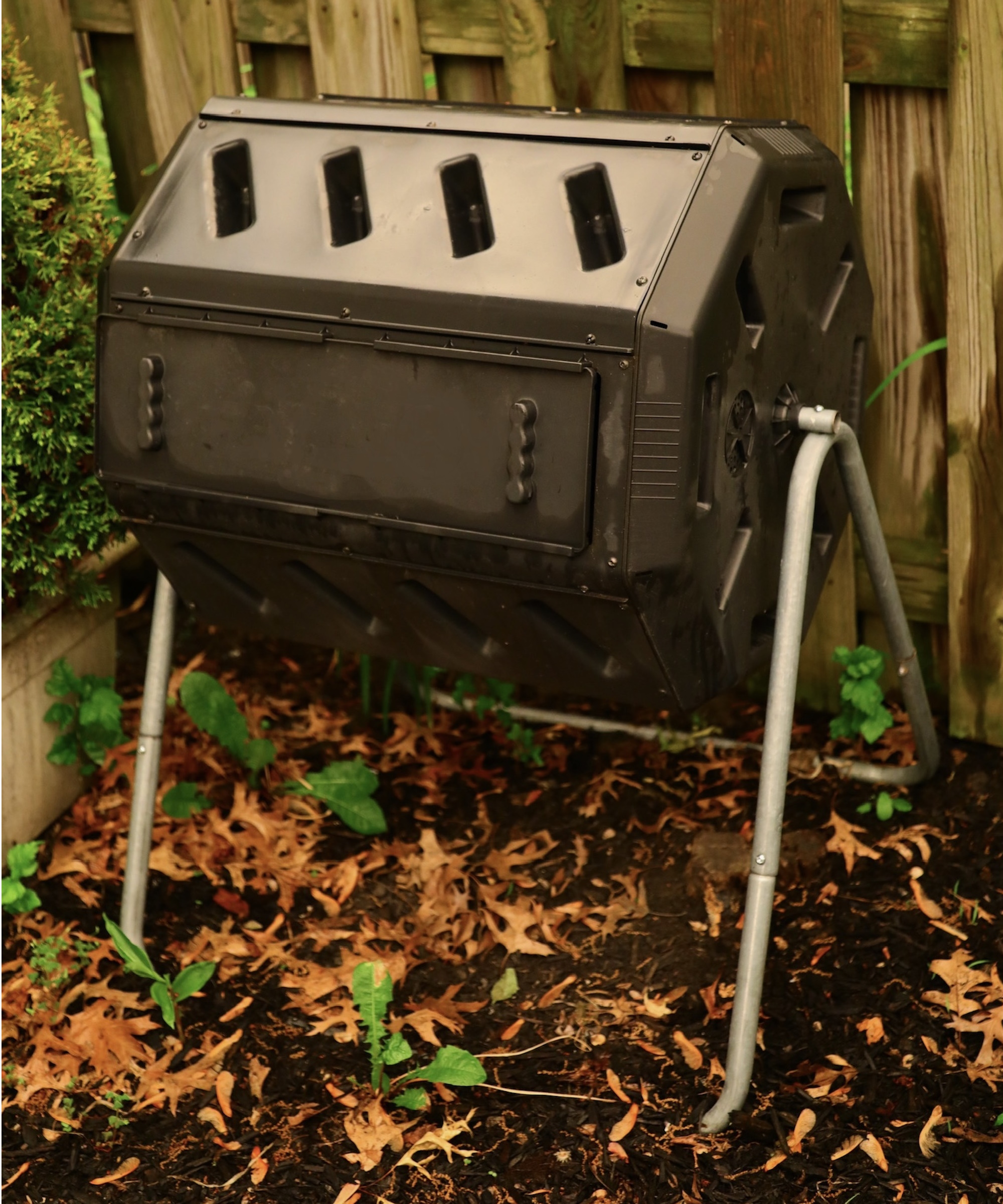
If you want to successfully make compost, you need to ensure there is plenty of air circulation to oxidise the compost and prevent unpleasant smells. Regularly turning your compost helps with this.
'Turning it will add oxygen, which is what the microbes need to stay aerobic. Otherwise it could turn anaerobic and start to smell,' says Colleen.
Microbes are the organisms that help break down compost and they need plenty of access to oxygen in order to work successfully. When microbes turn anaerobic, a foul odor can be smelled.
This is why so many gardeners invest in tumbling composters, like this tumbling composter from Amazon, which allows you to easily turn your compost pile. No matter what type of composter you have, make sure it has vents for airflow and turn your pile often.
5. Top up moisture levels in your compost bin
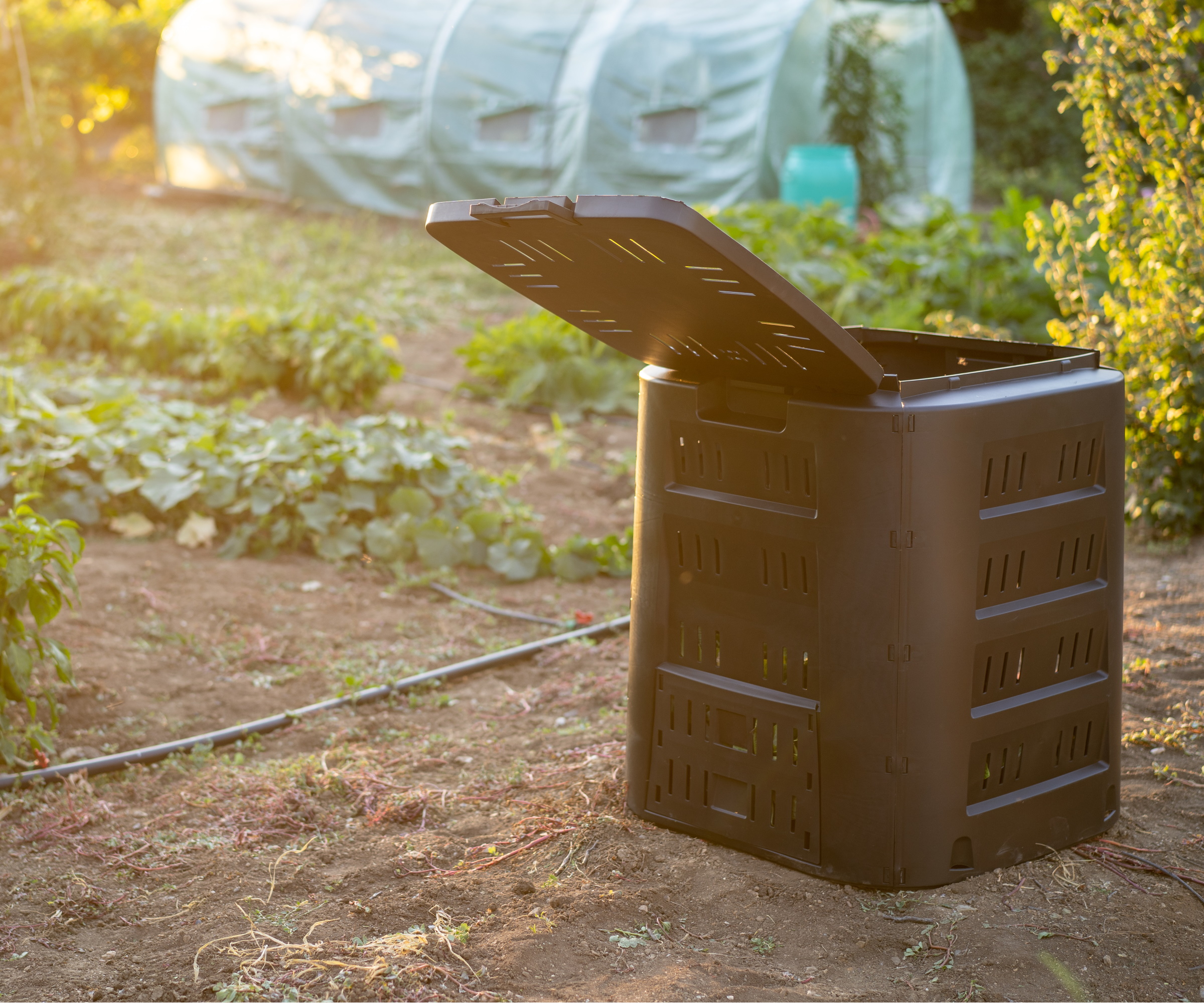
You may also find your compost heap is smelling bad if it has been left to dry out entirely. As well as having the right ingredients at the right proportions and plenty of oxygen, compost needs to be moist to help microbes work well.
'Water your compost pile as needed. It should feel like a damp sponge,' says Colleen.
It's as simple as using a garden hose, like this garden hose from Amazon, or watering can to to up moisture levels.
However, be cautious not to let your compost pile become soggy as this could have the opposite effect and enhance the smell of your compost. Using collected rainwater in your composter is also a great way to reduce water waste in your yard.
You can likewise prevent too much moisture escaping your compost pile by covering it. 'Moisture and aromas get trapped inside the compost pile by covering it with a tarp,' suggests Shane.
FAQs
Does finished compost go bad?
Finished compost refers to a compost pile that has completely broken down its materials. It won't go bad in the way we understand food going bad because the food scraps in the compost have already deteriorated. However, it is advised to use fresh compost where possible to offer plants the most amount of nutrients. You might also find that your compost pile shrinks over time as it breaks down even more.
Despite compost being made up of food scraps and other materials, it isn't meant to smell bad. If an unpleasant odor is coming from your compost bin, it might be a good idea to check you making compost in the right conditions.
Discover other ways to use kitchen waste in the garden to make greener gardening choices.

Tenielle is a Gardens Content Editor at Homes & Gardens. She holds a qualification in MA Magazine Journalism and has over six years of journalistic experience. Before coming to Homes & Gardens, Tenielle was in the editorial department at the Royal Horticultural Society and worked on The Garden magazine. As our in-house houseplant expert, Tenielle writes on a range of solutions to houseplant problems, as well as other 'how to' guides, inspiring garden projects, and the latest gardening news. When she isn't writing, Tenielle can be found propagating her ever-growing collection of indoor plants, helping others overcome common houseplant pests and diseases, volunteering at a local gardening club, and attending gardening workshops, like a composting masterclass.